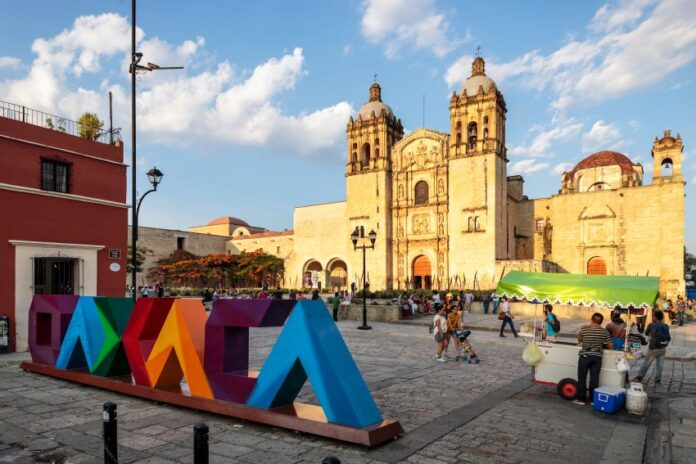by the El Reportero staff
After a 25-year absence, Oaxaca City brought back its beloved spring festival, rebranded as the Rodolfo Morales Spring Festival, in celebration of the city’s 493rd anniversary.
The revived event ran from Sunday, April 20 to April 30, featuring over 50 cultural activities, including concerts, dance performances, theater productions, art exhibitions, and family-friendly events — all offered free to the public.
Organized by the state’s Ministry of Culture and Arts (Seculta), the festival honored the late Oaxacan painter Rodolfo Morales, known for his efforts to preserve Oaxaca’s cultural identity. Morales, a celebrated figure in the region’s artistic history, passed away in 2001.
“This was a broad and inclusive celebration of art, culture, music, and sports,” said Oaxaca de Juárez Mayor Raymundo Chagoya Villanueva. “We launched the festival with a 10-kilometer race, and throughout the week, artists held free concerts in Oaxaca’s public squares — fitting for a city recognized as one of Mexico’s 11 heritage cities.”
While Oaxaca is best known for its massive Guelaguetza Festival each July — which attracted over 139,000 attendees and generated an estimated 517 million pesos (US $25.8 million) in 2024 — the spring festival was expected to make a more modest yet meaningful impact. Organizers projected 50,000 visitors and an economic boost exceeding 100 million pesos (roughly US $5 million).
Mayor Chagoya Villanueva pointed out the strategic timing of the event. “Tourism usually drops significantly after Easter,” he said, referencing the April 20 holiday that coincided with the festival’s opening day. “This celebration aimed to fill hotel rooms and restaurant tables during that seasonal lull.”
Among the main attractions were two high-profile concerts held at the Alameda de León. The cumbia legends Los Ángeles Azules, recipients of the 2024 Latin Grammy Lifetime Achievement Award, performed on April 25. Just three days later, on April 28, the politically provocative rock band Molotov — known for their 2003 Latin Grammy win for “Frijolero” — took the stage.
Additional programming included performances by the Oaxaca Symphony Orchestra, traditional marimba music, and other local acts.
Flavio Sosa Villavicencio, head of Seculta, underscored the festival’s mission to celebrate Oaxaca’s cultural wealth and promote community pride, blending pre-Hispanic heritage with modern urban expression.
The Spring Festival had once been a staple in Oaxaca City’s annual calendar until it was quietly discontinued 25 years ago, with no official explanation recorded. Following Morales’ death in 2001, the event was renamed in his honor — and now, in 2025, it made its long-awaited comeback.
Festival details and the full schedule remained available on the official Seculta website.
Sources: Excélsior, Milenio, Quadratin.



